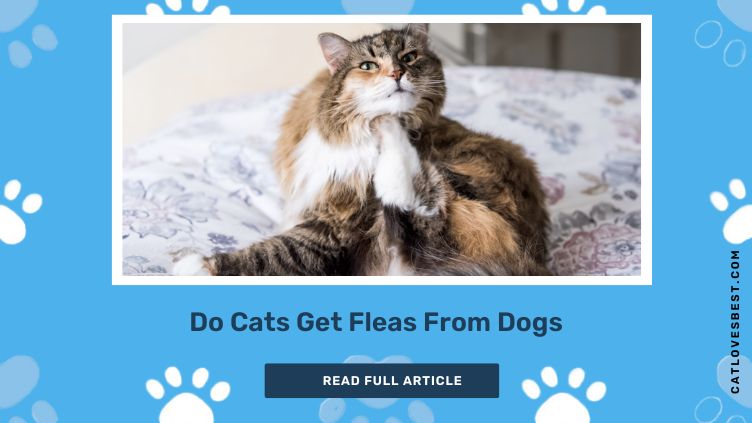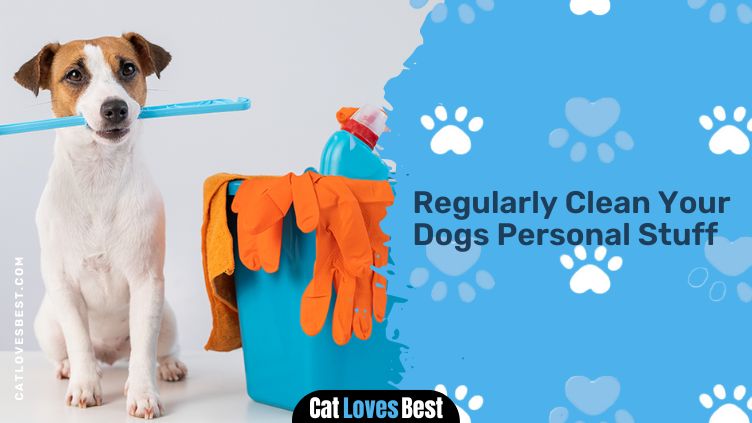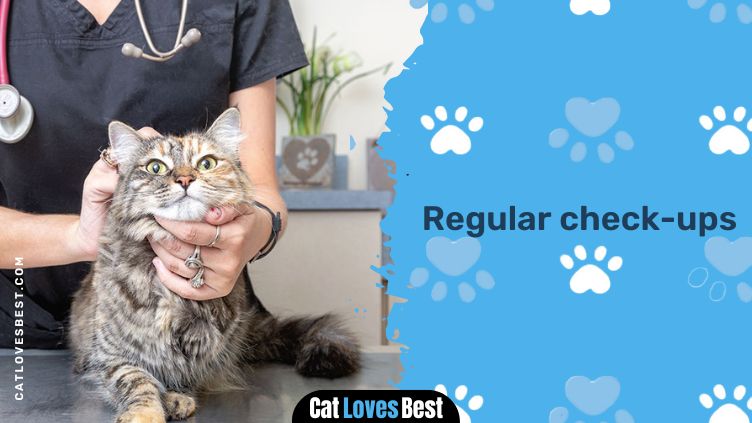We know cats faces fleas issues and it’s not easy for them to handle the skin issue. This is because during that time they get mood swings, are not able to spend relief time, and keep on licking or scratching themselves, which eventually leads to hurting themselves.

In all these, if you are parenting more than one pet then it becomes more tricky for you because your responsibility doubles, and so does the caring of each pet.
It’s a very common question that pops up in multi-pet households that one pet’s allergy or bacterial issue is transferable to another.
How can cats get affected by the dog’s fleas? Or vice versa, right?
To solve your query we have prepared a blog containing general information, plus facts that will guide you in a better way to deal with this fleas issue in your pets.
Can Cats Get Fleas From Dogs?
As PetMD explains, “The most common way for fleas to enter your household is on the family dog or another pet that comes inside from being outdoors. Cats can also get fleas from neighbor pets and local wildlife, such as birds, rabbits, guinea pigs, racoons, possums, squirrels, and skunks.“
Although we have checked the facts and research results also state that most cats get affected by fleas by local wildlife, other pets visiting the house, and also from dogs.
We also know that fleas affecting cats and dogs are different if we talk about scientific research. But we also cannot deny that even if different types of fleas attach to their body.
Eventually, they are transferring bacteria and pests, or fleas to each other’s bodies, when they are sharing the same rooftops. Or even spending time for a small fraction of time then also it is likely that if one is infested with fleas it can affect the other one.
How to Tell if Your Cat Has Fleas?
Well, it’s not always easy for a pet parent to detect their kitty’s health issue. But if you observe her closely, whenever she is suffering from any health issue or something is bothering g her you can notice her body language.[1]

Let me explain it to you in a better way, if your feline has been infested with bacterial issues, skin problems, pests, or fleas you can notice a few body signs.
- Her behavior will change
- She will keep on grooming herself to get rid of pests
- You will notice red patches on her body
- Fleas will easily be seen on her head, under the coat
- She keeps on licking or scratching her sensitive part of the body
So, all these body signs are indicators that she is suffering from skin issues and that something is bothering her. So, it is suggested to immediately seek the vet’s help, and start her medication to cure fleas.
This is because once fleas get settled on their body they will produce more eggs. Then it will become tough for you as well as for a vet to get rid of this issue. Which might just end up causing your feline pal more severe skin issues.
Tips to Prevent Cat Getting Affected From Dog Fleas
We have already gotten an idea from the above paragraphs that cats can get affected by dog fleas. So it’s better to start taking precautions and help your kitty not get targeted by fleas.[2]
We have some friendly prevention tips for you, which will guide you to take better care of both the pets and not let the fleas form their home on your pet’s body and irritate or lead to other skin problems.
Keep reading more to get an idea.
1. Maintain a Distance Between Your Cat and Dog
When you are parenting both dog and cat at the same time then it becomes a bit tricky. Because if they are infected with any skin allergies, it is likely that they will transfer easily to each other.

So, if in case your dog is infected with fleas or pests it increases the possibility that your feline pal will also get affected by the fleas.
It is recommended to keep both your pets away from each other, and not let them spend time together. Plus, if you notice your kitty is vising those areas where your furry pal was spending time divert her mind and take her out for a walk or play some activity with her. So that she spends less time with other pets and gives her separate space to relax.
2. Regularly Clean Your Dogs Personal Stuff
Cleaning your pet’s personal stuff is very necessary whether they are suffering from any health issues or not. Because if you will provide them with a clean environment to live it is likely that they will encounter less bacterial issues.

When your dog is infected with pests or fleas, in such cases, it becomes mandatory to clean her personal stuff or places where he is spending his time. This is because you are a parent to both cats and dogs so you cannot afford to infect your kitty with fleas.
It is very natural that she will move here and there in the whole house, and likely to spend time in that area where your dog is spending. This attracts fleas to attack her body, and infect her body as well.
3. Prevent Her From Spending Time Near Doghouse
Another possible way is by preventing your kitty from loitering around the doghouse. Since your dog is infested with fleas he will feel irritated and be in an annoying mood. S,o he will prefer to stay away from everyone and is likely to spend his time in his comfort zone i.e doghouse.

If your feline pal will keep on loitering around that place, there are chances that she will get affected by fleas. As that zone already will be infected with the pest or fleas, plus if she will spend more time over there it’s possible to get infected with the fleas.
4. Apply Sprays
Even after trying so much to keep your kitty and dog away from each other and still they want to spend together. In such a case, we will recommend you home remedy spray, you don’t have to do much just take a spoon of apple cider vinegar, and dilute it in the water.
Once the dilute water is ready just spray it on your kitty’s fur or take a brush dip a solution and apply it on her fur. While the grooming session will help to keep fleas away from your kitty’s body and won’t transfer from your dog’s body.
This spray will work effectively because fleas hate the smell of apple cider vinegar smell, and they won’t want to set on the fur which contains such a smell.
Prevention Steps to Get Rid of Fleas
PetWebMD explains, “Fleas are common pests that affect dogs, cats, and their owners. These small insects feed on the blood of their host. While wingless, fleas can jump as far as 13 inches, nearly 200 times the length of their bodies.“
Considering the fleas issue is important because you never know when your kitty got first infested with the fleas, and with time fleas have made their home in your kitty’s body. It is very important to start her medication, and along with that you also have to take good care of her.
Since your kitty is already facing skin issues, and so you or your family can also get targeted because it gets transformed from their body to yours.
We have penned down a few tips, which will give you an idea of how to deal with fleas, and resolve them as soon as possible to give relief to your kitty.
1. Give her a regular bath

Bathing is very important when your kitty is infested with pests and fleas. Especially medicated shower gel and shampoo for fleas treatment are being used to get rid of the fleas. While bathing your kitty make sure you are not hurting her skin. Because there are chances that due to an allergy, or itching issues she might have hurt herself, and there are open wounds that might get worse with soap or shower solution.
2. Daily combing

Now many grooming tools are available for your kitty on the market. You can easily get a flea comb for your kitty according to their hair density and body size. It is recommended to daily comb her hair with a dedicated flea comb, untangle her knots, as well as remove dirt, and fleas from her body to keep her clean.
Daily combing will help you to get rid of fleas faster, and your kitty coat will also remain healthy as there will be less chances of blood skin, loss of hair, etc.
3. Regular check-ups

If your kitty is infested with pests, and fleas it will be good to regularly check her up, whether she is not infesting more fleas which can lead to other skin allergies, etc.
4. Let her groom herself

On a regular basis also you must have seen your feline pal investing her time in grooming herself. So if any insect, pest, or fleas are troubling her, then there is a possibility that she will groom herself more to get rid of the itching or skin issues.
In such a case, allow her to groom herself but if you notice that she is licking her body more aggressively which ends up hurting herself, then it is suggested to stop her, and take her to the vet for relief.
FAQs
Where are my cat’s fleas coming from?
Mostly cats get fleas from outdoor animals when they go out for a walk or spend time with neighbor pets. Plus, cats can also easily get fleas from birds, raccoons, squirrels, skunks, etc.
Can cats get fleas from other cats?
Yes, it has been seen that parents with a multicat household face fleas issues in large ratios as compared to single ones. This is because if one cat is infested with fleas, she will transfer to other felines easily. As they share the same space, corner of the house, spend time together, groom each other, etc. These acts increase the possibility of transferring fleas from one feline to another one quickly.
How long do cat fleas live?
Generally, fleas live on your cat’s body until they are treated with proper medication. They generally transfer to other animal bodies or humans, and adult fleas live on your kitty’s body for at least two weeks. Even after starting medication, it’s not that your kitty will get rid of fleas in a few days. It will take time around two-three months to fully get rid away of this issue.
Well, It’s a Wrap!
Hopefully, you enjoyed reading our blog on whether can cats get fleas from dogs.
Well, it’s something different to hear because generally, we talk about dogs getting affected by cats’ fleas but it is also true that your feline pal can also be affected by dogs’ fleas.
So as you know, we have highlighted such important points, which must have added extra knowledge to your parenting hood of which you might be unaware.
Along with the facts, our prevention tips to keep both pets away from each other will help to stop spreading bacterial issues from one pet to another.
Plus, general remedies like regular bathing, combing, allowing your cat to groom herself, cleaning her stuff, etc. All these will definitely help you to overcome the issue.
However, don’t forget to consult the vet for the fleas treatment as our prevention will definitely help you to overcome the issue. But your vet’s guidelines and prescribed medicine will help to give your kitty complete relief and soon get rid of the skin issue easily.
References:
- Rust, M. K. (2017). The biology and ecology of cat fleas and advancements in their pest management: a review. Insects, 8(4), 118.
- Lawrence, A. L., Hii, S. F., Jirsová, D., Panáková, L., Ionică, A. M., Gilchrist, K., … & Šlapeta, J. (2015). Integrated morphological and molecular identification of cat fleas (Ctenocephalides felis) and dog fleas (Ctenocephalides canis) vectoring Rickettsia felis in central Europe. Veterinary Parasitology, 210(3-4), 215-223.

